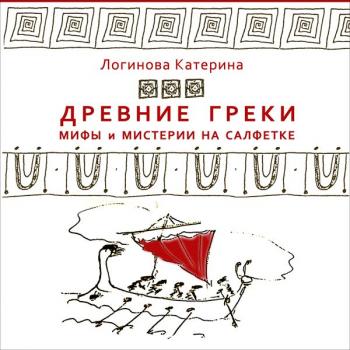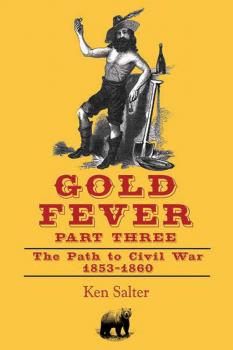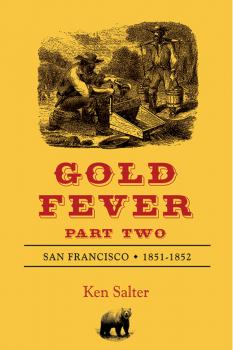Мифы. Легенды. Эпос
Различные книги в жанре Мифы. Легенды. Эпос1.Доолимпийский и Классический периоды. Формы религии
Однажды я решила пересказать ребенку «Илиаду». Аудитория оказалась благодарной, я увлеклась, а потом подумала, что «Илиада» – кусок, вырванный из контекста. И хорошо бы осветить весь контекст. Но где он начинается? С того ли, что Парис украл Елену? Или с того, что Парис услужил Афродите? Или с проблем, возникших у Фетиды? Расширяя контекст, я дошла до начал мира, который возник вместе с божественными субстанциями и закончился Троянской войной. В итоге я написала книгу. Не только о мифологии Древней Греции, но и мистериях, не только для детей, но и для взрослых.
0. Мифы и мистерии. Вступление
Однажды я решила пересказать ребенку «Илиаду». Аудитория оказалась благодарной, я увлеклась, а потом подумала, что «Илиада» – кусок, вырванный из контекста. И хорошо бы осветить весь контекст. Но где он начинается? С того ли, что Парис украл Елену? Или с того, что Парис услужил Афродите? Или с проблем, возникших у Фетиды? Расширяя контекст, я дошла до начал мира, который возник вместе с божественными субстанциями и закончился Троянской войной. В итоге я написала книгу. Не только о мифологии Древней Греции, но и мистериях, не только для детей, но и для взрослых.
GOLD FEVER Part Three
GOLD FEVER Part Three – The Path To Civil War is the third volume of a three-part trilogy. While part of an on-going series, the books stand alone and can be satisfactorily read individually. In GOLD FEVER Part Three the Committee of Vigilance of 1851 has disbanded and violent crime is on the rise again in San Francisco. By 1854 the city averages nearly two murders a day with only a handful of convictions; armed criminals, cutthroats and the low life rule the streets at night. Efforts to outlaw gambling and prostitution have failed despite laws to prohibit these practices and public clamor to enforce them. By 1855, San Francisco has 537 saloons, one for ever fifteen men, women and children. Placer gold deposits are nearly exhausted, yet gold seekers continue to arrive in droves. Competition for the meager gold remaining along the rivers fuels intolerance and animosity against foreigners, especially Mexicans, South Americans and the Chinese; even French and Italian miners are threatened. The San Francisco economy tumbles into recession which foments growing economic and political tensions. Southerners seeking to carve out a slave-holding state in Southern California gain control of California’s government and highest courts. California appears headed, like the nation, to a civil war over slavery. Will Manon’s restaurant be a target of the pro-slavery factions because she rescues and employs two former Chinese sex slaves? Will the economic downturn doom the restaurant and Pierre’s entrepreneurial enterprises? Can one raise a family and survive in this corrupt, lawless, and ruthless town as hotheads incite violence and chaos and push the city to the brink of civil war? GOLD FEVER Part Three – The Path To Civil War is the third volume of a three-part trilogy. While part of an on-going series, the books stand alone and can be satisfactorily read individually. In GOLD FEVER Part Three the Committee of Vigilance of 1851 has disbanded and violent crime is on the rise again in San Francisco. By 1854 the city averages nearly two murders a day with only a handful of convictions; armed criminals, cutthroats and the low life rule the streets at night. Efforts to outlaw gambling and prostitution have failed despite laws to prohibit these practices and public clamor to enforce them. By 1855, San Francisco has 537 saloons, one for ever fifteen men, women and children. Placer gold deposits are nearly exhausted, yet gold seekers continue to arrive in droves. Competition for the meager gold remaining along the rivers fuels intolerance and animosity against foreigners, especially Mexicans, South Americans and the Chinese; even French and Italian miners are threatened. The San Francisco economy tumbles into recession which foments growing economic and political tensions. Southerners seeking to carve out a slave-holding state in Southern California gain control of California’s government and highest courts. California appears headed, like the nation, to a civil war over slavery. Will Manon’s restaurant be a target of the pro-slavery factions because she rescues and employs two former Chinese sex slaves? Will the economic downturn doom the restaurant and Pierre’s entrepreneurial enterprises? Can one raise a family and survive in this corrupt, lawless, and ruthless town as hotheads incite violence and chaos and push the city to the brink of civil war? GOLD FEVER Part Three – The Path To Civil War is the third volume of a three-part trilogy. While part of an on-going series, the books stand alone and can be satisfactorily read individually. In GOLD FEVER Part Three the Committee of Vigilance of 1851 has disbanded and violent crime is on the rise again in San Francisco. By 1854 the city averages nearly two murders a day with only a handful of convictions; armed criminals, cutthroats and the low life rule the streets at night. Efforts to outlaw gambling and prostitution have failed despite laws to prohibit these practices and public clamor to enforce them. By 1855, San Francisco has 537 saloons, one for ever fifteen men, women and children. Placer gold deposits are nearly exhausted, yet gold seekers continue to arrive in droves. Competition for the meager gold remaining along the rivers fuels intolerance and animosity against foreigners, especially Mexicans, South Americans and the Chinese; even French and Italian miners are threatened. The San Francisco economy tumbles into recession which foments growing economic and political tensions. Southerners seeking to carve out a slave-holding state in Southern California gain control of California’s government and highest courts. California appears headed, like the nation, to a civil war over slavery. Will Manon’s restaurant be a target of the pro-slavery factions because she rescues and employs two former Chinese sex slaves? Will the economic downturn doom the restaurant and Pierre’s entrepreneurial enterprises? Can one raise a family and survive in this corrupt, lawless, and ruthless town as hotheads incite violence and chaos and push the city to the brink of civil war?
GOLD FEVER Part Two
This is the second volume of a three-part trilogy. The first volume, GOLD FEVER / San Francisco 1851, was published in 2013. While part of an on-going series, the books stand alone and can be satisfactorily read individually. In GOLD FEVER Part Two San Francisco has been torched twice in the space of six weeks. Merchants and residents are angry and organized in a Committee of Vigilance to arrest, try and hang the arsonists and all the other cutthroats, villains and armed criminals that make the city a dangerous, lawless den of inequity in 1851 and 1852. The Governor, his cronies, and the corrupt city and county officials are determined to rein in the Committee of Vigilance even if it means civil war. Pierre and Manon Dubois must negotiate their way carefully through the minefield of warring factions, treacherous streets, and from competition of the boatloads of new immigrants, Jezebels and fortune hunters arriving weekly. The city is still a ruthless man’s world where Yankee men control commerce, can bribe juries and customs officials, and deport foreign immigrants at will. Can Manon realize her dream to own and run a high-end French restaurant employing women chefs in competition with the established male-owned and staffed restaurants? Can Pierre establish a viable notary and private detective agency in this uncertain environment? Can Manon’s women partners, associates and employees prevail in their careers in the still lawless town with over 2,000 saloons, innumerable gambling palaces and dens, fancy bordellos and sex-slave cribs?









